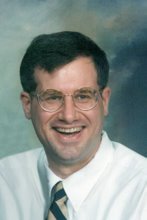“You’re on CNN. The show that leads into me is puppets making crank phone calls! What is wrong with you?” -----Jon Stewart
At first glance it seems incongruous that I want to get my Master’s degree in political science at Florida Atlantic University, since my primary interests are in political theory (especially ideology) and American politics and I take a qualitative approach, while FAU’s political science department emphasizes international relations and comparative politics, and quantitative methodology, but the incongruity is perhaps more apparent than real.
Based on my experiences so far, I believe graduate work at FAU offers me an opportunity to learn the most in those areas where I am weakest while still pursuing my primary specialties, particularly through independent study. In addition, I appreciate FAU’s balance of emphasis between research and teaching, since I enjoy doing both of these equally. (I also intend to pursue a Ph.D. in political science; my first choice is the University of Chicago.)
But my interest in political science is far more than strictly academic, if you will pardon the pun. I want to have a major positive impact on the world. With all due respect to research and teaching, my aspiration is become a “public intellectual” -- my role-models are Thomas Friedman, James Fallows, George Lakoff, Matthew Miller, Charles Murray, and Bruce Ackerman: people who write popular columns, host political discussion shows, or write books such as Moral Politics and Don’t Think of an Elephant, Losing Ground and In Our Hands, and The Stakeholder Society and Before the Next Attack. These are bold visions of radical change. Like Robert Kennedy (and George Bernard Shaw) I don’t just want to see things as they are and simply ask why; I want to see things that never were and ask “Why not?”
We live in “interesting times,“ to quote the ancient Chinese witticism. The “public intellectuals” Ph.D. program is a recognition of the fact that an article in Atlantic, Harper’s, or The New Republic will have more influence on policy than will one in a peer-reviewed academic journal; I’m not sure if it recognizes the fact that more people get their news from The Daily Show and The Colbert Report than from The New York Times or any broadcast network, or the political influence of fiction such as South Park and Borat. Even the government’s own threat-assessors are “channeling Tom Clancy.”
FAU is the only university in North America which offers a graduate degree in English with a specialization in science fiction and fantasy literature, and I intend to pursue that degree as well as one in political science. But speculative fiction has been used to address political issues since long before H. G. Wells worked with the Fabians; depending on how one defines it, the tradition of political science fiction and fantasy goes back to either Thomas More’s Utopia or to Plato's philosophical fables of Atlantis and the Ring of Gyges. When truth becomes stranger than fiction, shouldn’t fiction return the favor?
References
Ackerman, Bruce A. 2006. Before The Next Attack: Preserving Civil Liberties in an Age of Terrorism. New Haven: Yale.
Ackerman, Bruce A., and Anne Alstott. 2000. The Stakeholder Society. New Haven: Yale.
Anderson, Brian C. 2005. South Park Conservatives: The Revolt Against Liberal Media Bias. Washington, D.C.: Regnery.
Anderson, Brian C. 2005. “South Park Republicans,” The Dallas Morning News, 17 April. http://www.manhattan-institute.org/html/_dmn_southpark_reps.htm
CNN Crossfire. 2004. “Jon Stewart’s America.” 15 October.
Katz, Marisa. 2006. “Novel Approach: Terrorism as Pulp,” The New Republic. 06 November. <http://www.tnr.com/doc.mhtml?i=20061106&s=katz110606>
Lakoff, George. 2004. Don’t Think of an Elephant: Know Your Values and Frame the Debate -- The Essential Handbook for Progressives. New York: Chelsea Green.
Lakoff, George. 2002. Moral Politics: How Liberals and Conservatives Think. Chicago: University Press.
Lakoff, George. 2006. Whose Freedom?: The Battle Over America’s Most Important Idea. New York: Farrar.
Murray, Charles. 2006. In Our Hands: A Plan to Replace the Welfare State. Washington, D.C.: AEI.
Murray, Charles. 1986. Losing Ground: American Social Policy, 1950-1980. New York: Basic Books.
Miller, Matthew. 2003. The Two Percent Solution: Fixing America’s Problems in Ways Liberals and Conservatives Can Love. New York: Public Affairs.
Pinker, Steven. 2006. "Block that Metaphor!" The New Republic. 09 October. <http://www.tnr.com/doc.mhtml?i=20061009&s=pinker100906>
Satin, Mark. 2004. Radical Middle: The Politics We Need Now. Boulder: Westview.
WorldNetDaily. 2006. “No Joke: ’Daily Show’ Substantive as Network News.” 5 October.






